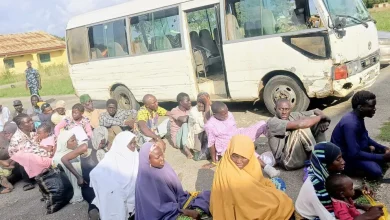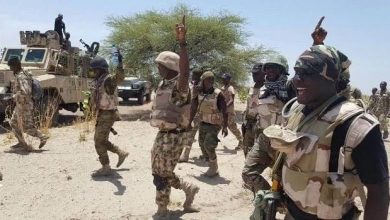Human right violations by police continues four years after #EndSARS protests – Amnesty

Amnesty International Nigeria has raised an alarm over persistent human rights abuses by the Nigeria Police, including unlawful detention, extortion, torture and sexual violence, four years after the October 2020 #EndSARS protests.
In a statement released on Sunday, Amnesty International called on the Nigerian government to address these ongoing human rights violations, which continue to foster a culture of impunity and leave citizens vulnerable to the same abuses that sparked the #EndSARS movement.
The nationwide protests, held from October 1 to 20, 2020, aimed to end police brutality, particularly targeting the now-defunct Special Anti-Robbery Squad (SARS).
However, the demonstrations were abruptly halted on October 20, 2020, following tragic incidents at the Lekki Toll Gate in Lagos, where lives were lost during an alleged military shootout. , dad’s landed properties survived depression; but I’m alive’:00 / 0:00
The Country Director of Amnesty International Nigeria, Isa Sanusi, stated, “Amnesty International continues to receive—almost daily—reports of human rights violations by the police across Nigeria, including unlawful detention, extortion, torture, sexual violence, and in some cases, extrajudicial execution.
The Nigerian authorities still have the opportunity to reform the police and create an institution with zero tolerance for human rights violations”, Sanusi added.
He also emphasized that the authorities must not let this opportunity slip away by failing to hold the police accountable for their actions. He warned that the situation is gradually reverting to the horrific pre-#EndSARS days, where police officers feel free to violate human rights without consequence.
He further stressed that the Nigerian authorities’ promises to address these violations must be fulfilled to comply with both Nigerian and international law, insisting that all atrocities surrounding the #EndSARS protests need thorough investigations, with perpetrators brought to justice.
Amnesty highlighted several cases of judicial execution by the police in the four years since the protests. Notable incidents include: Jumoke Oyeleke (25), shot on July 3, 2021, during a Yoruba nation rally in Lagos. Mosurat Ojuade, an 18-year-old fashion designer, killed by police on September 11, 2021;
Paul Durowaiye, shot over a dispute regarding sachet water on January 22, 2022; Oliver, killed by a police sergeant over a minor argument on June 4, 2022; and Gafaru Buraimoh, shot on December 7, 2022, in Lagos.
Also Bolanle Raheem, a lawyer shot at close range by a police officer on December 25, 2022; and Onyeka Ibe, shot to death on April 5, 2023, for refusing to pay a bribe.
Amnesty also cited a leaked government memo dated July 19, 2023, which revealed that the Lagos State government approved over N61 million for the mass burial of 103 victims of the #EndSARS protests. However, the identities of these victims remain undisclosed, and those responsible for the killings have yet to face justice.
Of the 36 states in Nigeria, only Lagos has publicly disclosed the findings of its #EndSARS judicial panel. Additionally, only two states, Ekiti and Osun, along with the Federal Capital Territory (FCT), have fully compensated survivors and relatives of victims of police brutality. Meanwhile, seven states—Borno, Jigawa, Kano, Kebbi, Sokoto, Yobe, and Zamfara—have yet to establish any judicial panel to address these issues.


